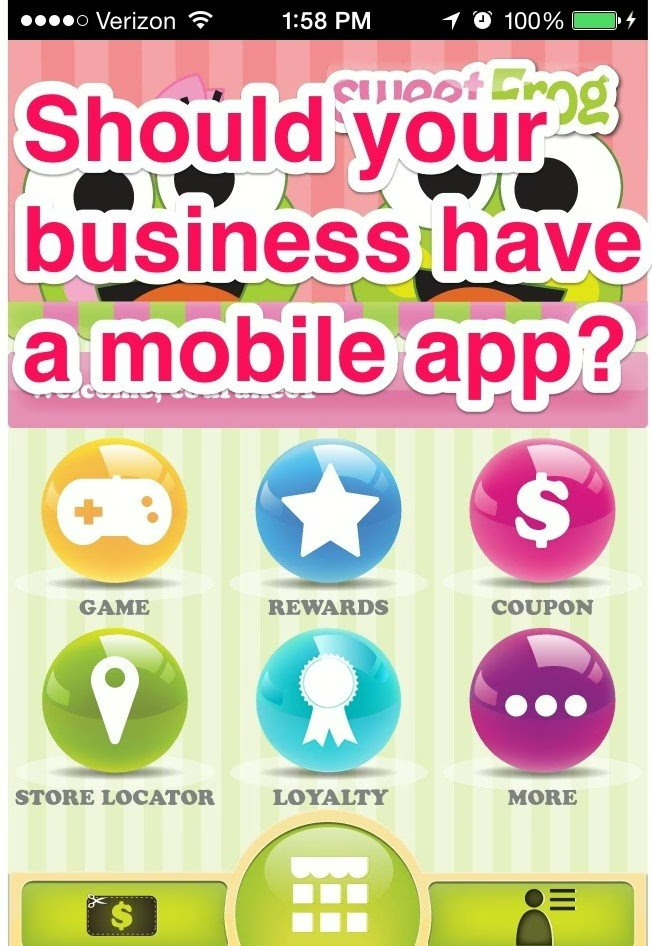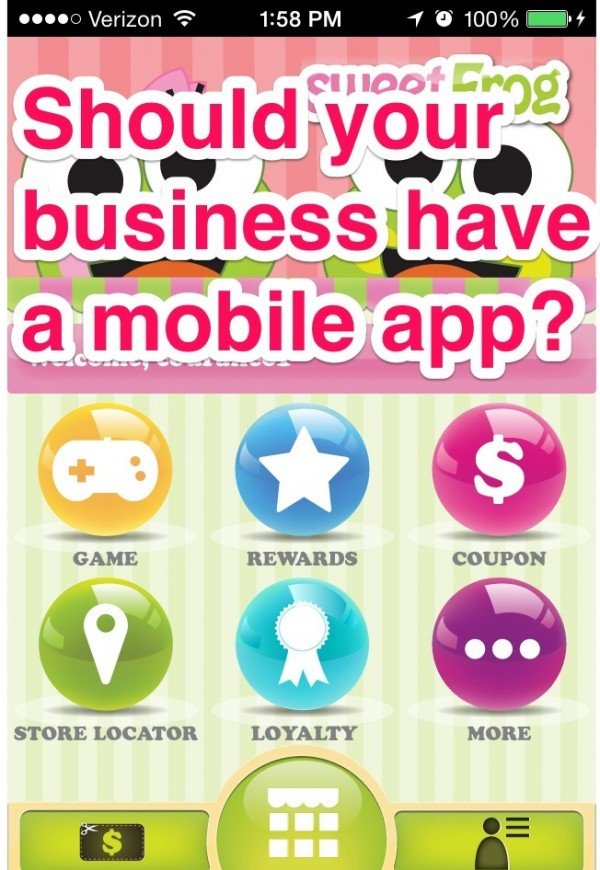Mobile marketing can include how your website looks, getting found locally, text message marketing, ads, paid search, and even apps. In this series, we’ve already reviewed many of these. Let’s look at mobile apps for your business.
- Mobile websites
- Location-based marketing
- QR codes
- SMS messages (like email newsletters)
- Mobile ads
- Mobile paid search
- Apps
Caveat: A mobile app is different than a mobile website. Your app should do more than what someone can do visiting your website on their mobile device.
Examples of Mobile Apps for Your Business
- Loyalty rewards – two nearby ice cream businesses (Rita’s and Sweet FROG) use their mobile app to scan loyalty “cards” and additionally to push alerts to special promotions. Usually there is a QR code in the app for the store clerk to scan at your checkout.
- Ordering food and reserving tables – Chipotle’s app helps customers place their order for pickup and Starbucks will be rolling this feature out soon in their app.
- Shopping – whether you are buying clothes or car parts, sometimes a shopping cart on an app will just work better than expecting mobile users to navigate your website
- Photo submissions – if you want people to upload photos to you, an app would more readily allow for this than emailing or other uploading options. Progressive Car Insurance and Bank of America are using these as part of routine business.
- Track previous purchases – Have you ever wanted to see what you purchased last time? This is a feature that Lowe’s makes available and helps you know exactly what you need even without your measurements or color swatches.
- Coupons – If you want to offer special discounts, create your own coupons for customers to access from their phones
- Store Locator – if you have several locations, a store locator can help people find the nearest location
If your business has a great idea for building an app for your business, consider first if it offers something that can’t be done on your mobile website.

